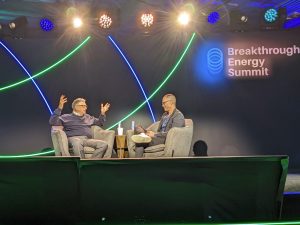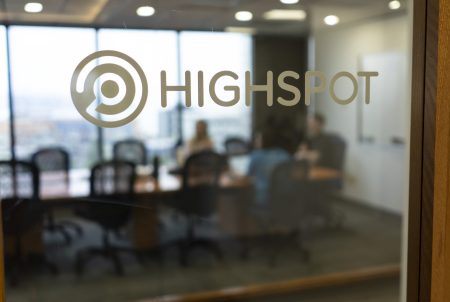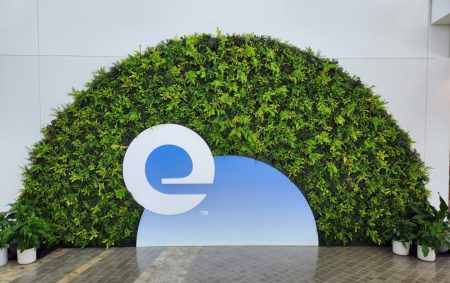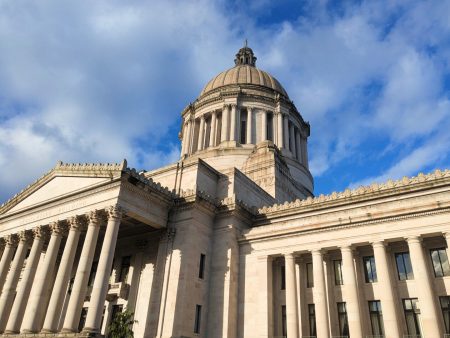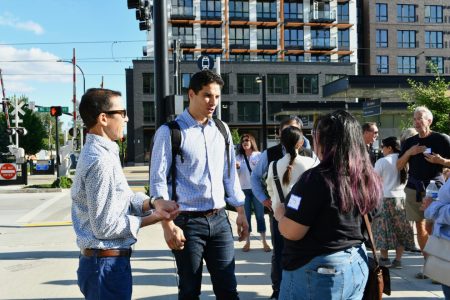GeekWire Weekly Tech Roundup: November 23, 2025
The tech landscape continues to evolve at a breathtaking pace, with innovations and corporate developments shaping our digital future. This past week, GeekWire chronicled several significant stories that highlight the intersection of technology, policy, and human ingenuity. From privacy debates surrounding public safety cameras to breakthrough achievements in fusion energy, the tech world remains as dynamic as ever. At the heart of many developments is the ongoing AI revolution, with both educational institutions and major corporations working to harness these powerful tools responsibly while addressing the challenges they present. The Seattle region continues to be a hub for innovation, though not without some tensions between tech giants and local governments.
Privacy concerns took center stage as Washington state grapples with the implications of Flock Safety cameras and whether the data they collect falls under public records disclosure laws. This debate reflects the broader societal struggle to balance public safety with individual privacy rights in an era of ubiquitous surveillance technology. Meanwhile, in corporate America, Jeff Bezos made headlines by returning to an operational executive role for the first time since stepping down as Amazon’s CEO in 2021. This unexpected move signals a new chapter for both Bezos and the company he founded, potentially reshaping Amazon’s strategic direction in the coming years. On the educational front, the University of Washington received a generous $10 million donation from Charles and Lisa Simonyi aimed at promoting responsible AI use in classrooms. This initiative acknowledges both the transformative potential of artificial intelligence in education and the ethical considerations that must guide its implementation.
Amazon continues to expand its retail footprint and return network beyond its own physical locations, demonstrating the company’s ongoing efforts to integrate digital and physical commerce experiences. This expansion comes amid political tensions, as revealed by comments from David Zapolsky, Amazon’s chief global affairs and legal officer, regarding the company’s relationship with Seattle. These remarks highlight how tax policies and local regulations have influenced Amazon’s decision to shift more of its workforce to Bellevue and Northern Virginia, illustrating the complex dynamics between tech giants and the communities they inhabit. In the energy sector, Seattle-based Zap Energy achieved a remarkable milestone in fusion power development by generating pressure ten times stronger than that found at the bottom of the Mariana Trench. This breakthrough represents a significant step forward in the quest for clean, sustainable energy solutions that could eventually transform global power systems.
Innovation in computing hardware appears in PowerLattice’s announcement of a “power delivery chiplet” that claims to reduce energy requirements by more than 50% while enhancing chip performance. This development addresses one of the most pressing challenges in semiconductor technology: the growing energy demands of increasingly powerful processors. By delivering power directly inside the processor package, PowerLattice’s approach could have far-reaching implications for everything from data centers to mobile devices, potentially reducing both operational costs and environmental impact across the tech industry. In the software development realm, Amazon is broadening the release of its Kiro development tool, which features AI-assisted capabilities. This expansion reflects the growing importance of artificial intelligence in coding and software creation, with Amazon positioning itself to compete in a market that continues to gain momentum as developers seek tools that enhance productivity and creativity.
The entrepreneurial spirit remains vibrant in Seattle, with local founders tackling diverse challenges across multiple sectors. These innovators are working on solutions for space communication, hiring processes, restaurant marketing, jewelry sustainability, and even helping consumers find the perfect bottle of wine. Their efforts demonstrate how technology continues to permeate every aspect of business and daily life, creating opportunities for creative problem-solving and new venture creation. This entrepreneurial energy contributes to the region’s reputation as a technology hub that extends well beyond the presence of tech giants like Amazon and Microsoft, fostering a diverse ecosystem of startups and innovators working on the next generation of products and services.
Educational leadership is also evolving, as evidenced by University of Washington President Robert Jones’s vision to expand computer science access for undergraduates and forge new public-private partnerships. His focus on addressing “society’s grand challenges” through collaborative efforts between academia and industry represents an important trend in higher education. Universities increasingly recognize that preparing students for the technology-driven future requires not just technical education but also partnerships that connect classroom learning with real-world problems and opportunities. This approach acknowledges that the most significant challenges facing society—from climate change to healthcare access to digital equity—require interdisciplinary solutions and collaboration across traditional boundaries. As institutions like UW adapt to changing technological and social landscapes, they help shape not just the workforce of tomorrow but also the innovation ecosystem that will address our most pressing collective challenges.
As we reflect on these developments, it’s clear that technology continues to transform every aspect of our world, from how we shop and work to how we learn and communicate. The stories highlighted by GeekWire this week reveal both the tremendous potential of technological innovation and the complex human questions it raises. Privacy, sustainability, education, and the relationship between corporations and communities remain central concerns as we navigate this rapidly changing landscape. What emerges is a picture of a tech ecosystem in constant evolution, driven by brilliant minds seeking solutions to problems both practical and profound, all while grappling with the social, ethical, and political dimensions of technological change. As we move forward, the conversation between technology creators and the broader society will remain essential to ensuring that innovation serves human flourishing and addresses our most significant collective challenges.
